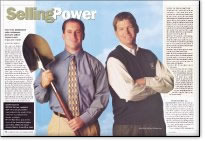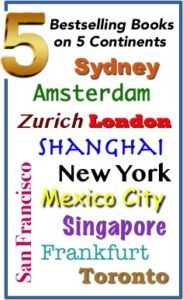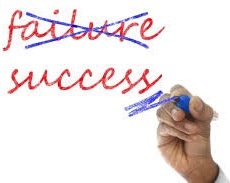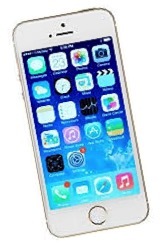Thomas A. Freese's Blog, page 2
January 2, 2019
SellingPower: Sales Makeovers
 Heather Baldwin, Editor of Selling Power Magazine, heard about the success our clients were having with Question Based Selling. So, she called me and asked, “Do you have any real life examples?”
Heather Baldwin, Editor of Selling Power Magazine, heard about the success our clients were having with Question Based Selling. So, she called me and asked, “Do you have any real life examples?”
That was easy enough. Since I had already trained several sales teams within IBM, I called Jim Hardee, Vice President Teleweb Sales, and asked if anyone wanted to participate in a laboratory experiment to ‘field test’ the QBS Methodology. We got tons of volunteers and the article about what happened with one person in particular.
“The results have been remarkable. Freese’s guidance has given him more confidence, made him more relaxed, and he sounds more natural. Now, Scott gets to the heart of the customer’s issues every time.” –Jim Hardee, IBM, Vice President Sales
In the article, Scott Fletcher attests that his conversations with customers have definitely become more meaningful. “Without a doubt,” he says, “This process makes customers ‘want to’ engage with you instead of pushing you away. Once you can get customers to open up, it makes the sales process a whole lot easier and the QBS approach does just that.”
December 12, 2018
Tom Freese’s Latest Book is a Game Changer!
width:490px;
margin: auto;
border: 1px solid red;
background: #8C191C;
color: #FFFFFF;
font-family: Arial;
font-style: italic;
font-weight: bold;
font-size: 14px;
text-align: left;
padding: 4px;
}
.offer {
background-color: #eee;
border: 2px solid #ddd;
-moz-border-radius: 5px;
-webkit-border-radius: 5px;
-moz-box-shadow: 0 1px 5px #999;
-webkit-box-shadow: 0 1px 5px #999;
border-radius: 5px;
box-shadow: 5px #ccc;
width: 400px;
text-align: center;
padding-top: 15px;
}
WARNING: Salespeople and sales managers will love this book, but
old school sales trainers are going to hate me for having written it.
Have you noticed that the overall business environment has changed dramatically over the years, yet the world of sales training has remained surprisingly stagnant? That’s about to change in a BIG way with the release of Tom Freese’s latest and most comprehensive addition to the QBS books series.


$14.00
(Click to Save 50%)
(Paperback)
$19.95

SalesForce 2020 is the only book of its kind. It’s a book about the future. While hindsight may be 20/20, it has become increasingly clear that many of the older school selling tactics that have been accepted and touted for decades no longer make sense as we rapidly approach the year 2020.
This raises two important questions that sellers in every industry must consider:
1.) “Do you want to continue struggle with what “used to work” in days gone by, or would you rather focus on what’s going to give you the greatest selling advantages moving forward?”
2.) Might it be time for an overhaul, or to at least upgrade your current approach?”
There’s a reason why top performing salespeople excel, while those who are struggling continue to struggle…even though they are all following the same basic sales process. It’s because just identifying the steps of the sales process is no longer a differentiator. All of your competitors have a sales process in place too, and theirs is probably very similar (if not identical) to yours.
Today, salespeople and managers are hungry for specific sales strategies and selling techniques that will give them an ‘unfair’ advantage in their respective markets, rather than reverting back to the outdated logic that has plagued traditional sales approaches for the last 30+ years.
SalesForce 2020 is a must read for anyone engaged in today’s rapidly changing sales environment. The book flows like you’re having a one-on-one conversation with Tom. Definitely a break-through in how to execute more effectively moving forward!
—Richard Brock, CEO
SalesTalk Technologies
Is this book an indictment of old school sales methods? In a word—Yes. It’s also a road map to show sellers how to gain a proven and differentiable advantage moving forward. Enjoy!
Come Join the Next Generation of Sales Enablement.
October 8, 2018
5 Bestselling Books, on 5 Continents!
 As the world shrinks and the global economy continues to expand, Question Based Selling has become increasingly more important for those sales organizations who want to maintain a leadership position in their respective markets.
As the world shrinks and the global economy continues to expand, Question Based Selling has become increasingly more important for those sales organizations who want to maintain a leadership position in their respective markets.
Sure, there are cultural differences when selling in Asia, Europe, and South America. For that matter, there are plenty of disparities between doing business in New York City and selling in California.
Fortunately for sales leaders around the globe, there are many more similarities than differences when it comes to boosting sales effectiveness and empowering a sales team.
QBS empowered our team to stand out by teaching us how to navigate more in-depth discussions and increasing our opportunity to provide a broader range of solutions. —Helen Bazkolovski, Sales Manager, Merck Corporation, Sydney, Australia
[image error]
For example, in what cultures (or market segments) is it important to differentiate yourself from the competition? How important is it to establish credibility, pique the customer’s interest, and expand the customer’s needs to increase their sense of urgency for making a decision? How important is it to convey greater value in order to justify the cost of your offerings and protect profit margins? These skills are vital to sales success in every industry, and in every corner of the world.
Differentiation is no longer just about putting a sales process in place. Everyone else in your competitive circles already has a sales process, and it’s more than likely that their process is virtually identical to yours.
Sales effectiveness these days comes down to execution, plain and simple. Look at any sales organization and you’ll quickly discover that some salespeople are more effective than others, even when they’re offering the same products and services to the same types of customers.
“Question Based Selling is the best sales effectiveness training available if you are looking for actionable results!” —Dominic Camden, Senior Vice President & Chief Sales Officer—Zones, Inc., Chicago
In that way, sales is very similar to sports. Anyone can visit their nearest golf pro shop and purchase the same golf balls, clubs, and shoes as the pros, but that doesn’t mean you will have the skills or abilities needed to execute like the guys we see on TV every weekend playing the finest golf courses in the world.
Identifying the steps of the sales process is fine. But, teaching salespeople and sales organizations “how” to execute more effectively, in order to increase their return on invested sales effort (R.O.I.S.E.), is the field on which the game of selling is now being played.
That’s where QBS comes in—we solve the problem that traditional sales approaches have created over the last 30+ years. In fact, having now delivered QBS Methodology Training courses throughout the US, and on five continents all over the world, I can tell you with confidence the secret is out.
Tell the world!
5 Bestselling Books on 5 Continents..!
 As the world shrinks and the global economy continues to expand, Question Based Selling has become increasingly more important for those sales organizations who want to maintain a leadership position in their respective markets.
As the world shrinks and the global economy continues to expand, Question Based Selling has become increasingly more important for those sales organizations who want to maintain a leadership position in their respective markets.
Sure, there are cultural differences when selling in Asia, Europe, and South America. For that matter, there are plenty of disparities between doing business in New York City and selling in California.
Fortunately for sales leaders around the globe, there are many more similarities than differences when it comes to boosting sales effectiveness and empowering a sales team.[image error]
For example, in what market segments is it important to differentiate yourself from the competition? How important is it to establish credibility, pique the customer’s interest, and expand the customer’s needs to increase their sense of urgency for making a decision? How important is it to convey greater value in order to justify the cost of your offerings and protect profit margins? These skills are vital to sales success in every industry, and in every corner of the world. [image error]
Differentiation is no longer just about putting a sales process in place. Everyone else in your competitive circles already has a sales process, and it’s more than likely that their process is virtually identical to yours.
Sales effectiveness these days comes down to execution, plain and simple. Look at any sales organization and you’ll quickly discover that some salespeople are more effective than others, even when they’re offering the same products and services to the same types of customers. 
In that way, sales is very similar to sports. Anyone can visit their nearest golf pro shop and purchase the same golf balls, clubs, and shoes as the pros, but that doesn’t mean you will have the skills or abilities needed to execute like the guys we see on TV every weekend playing the finest golf courses in the world.
Identifying the steps of the sales process is fine. But, teaching salespeople and sales organizations “how” to execute more effectively, in order to increase their return on invested sales effort (R.O.I.S.E.), is the field on which the game of selling is now being played.
That’s where QBS comes in—we solve the problem that traditional sales approaches have created over the last 30+ years. In fact, having now delivered QBS Methodology Training courses throughout the US, and on five continents all over the world, I can tell you with confidence the secret is out.
Tell the world!
2019 New Year’s QBS Boot Camp: January 10-11, 2019
 “There has never been a better time for sellers to do everything possible to make themselves invaluable to their customers, colleagues, and their company.” -T. Freese
“There has never been a better time for sellers to do everything possible to make themselves invaluable to their customers, colleagues, and their company.” -T. Freese
With the New Year fast approaching, we are excited to announce the upcoming 2019 New Year’s QBS Boot Camp! If you would like to renew your focus on increasing your own sales effectiveness, or give your entire sales team an unfair advantage over the competition, join us on January 10 – 11, 2019.
The program will be facilitated by Certified QBS Trainer Alan Rohrer.
The learning environment will be highly interactive, with participants from a variety of industries including technology, financial services, healthcare, consulting, insurance, real estate, manufacturing, advertising, hospitality, and retail, and feedback from previous QBS Summit events has been “off the charts.”
With limited seating, reserve your seats early since we are expecting a full house. You might also want to bring extra pencils and a stack of writing pads for note taking.
“Tom! I wanted to thank you for an amazing training two weeks ago-my head is still spinning from all of the great info. I met with our Regional Manager yesterday and he wants you to train the rest of our team. You will be hearing from us very soon…” -Liz B., Michigan…your newest QBS groupie!
June 25, 2018
Tired of the Daily Sales Grind…?
A proficiency gap seems to be widening among sales teams—where new business opportunities are increasingly more difficult to come by, and far too many sellers have become complacent (if not lazy) in their commitment to hone their craft.
Today’s selling environment is more difficult. That’s inarguable, especially given the volume of vendor solicitations prospective buyers have to fend off on a daily (if not hourly) basis.
“Customers don’t want to talk to vendors anymore,” is a recurring theme I often hear as I deliver QBS Methodology Training to sales teams all over the world, followed by the sentiment (from salespeople) that… “I would much rather communicate via email or text.”

I get it. Having raised two daughters in the electronics age, I’ve been on the receiving end of countless father-daughter text messages, some as long as my leg. My reply is always the same… ”Call me so we can discuss!” Seconds later, my cell phone rings and we work through whatever the latest drama, tragedy, or cause for celebration is—in a fraction of the time it would take to convey a series of cryptic texts back and forth.
Note that I’m not an old-school fuddy-duddy. In fact, quite the opposite. I believe that email, texting, and social media can all be valuable communication tools. But they DO NOT compensate for the real-time value of face-to-face (or voice-to-voice) interactions with customers.
Here’s a simple truth that will nevergo out of vogue. Every customer on your target list of accounts shares their needs, wants, goals, objectives, thoughts, feelings, and concerns with someone. The question is whether they’re open and willing to share that information with you.
Throughout the six books I’ve published on selling and effective communication skills, I consistently make the point that business relationships are personal, and people ultimately buy from people. While that may seem cliché, a communication gap is created when today’s electronic and social medial mentality impedes the ability to cultivate viable and lasting business relationships.
The fear of rejection has always been the enemy for salespeople who are responsible for reaching out to prospective buyers. And now that the average response rate when leaving voice-mail messages or sending mass email is less than 1%, it’s much less taxing on the human psyche to hide behind a keyboard than to actually put yourself out there and risk being rejected.
I get that, too! I was never good at dealing with rejection, even though multiple sales managers over the years tried to pound the idea into my head that rejection comes with the territory, so deal with it.
It may sound weird, but I’ve found that the best way to deal with rejection is to win more often. Closing an important sale, or wrapping up a significant deal is an aphrodisiac that is unmatched in other professions. While you can’t expect to win ‘em all, there’s no reason you shouldn’t expect to win more than your fair share of opportunities in today’s selling environment.
I would argue that the proliferation of electronic communication tools, social media, and digital marketing have created significant opportunities for go-getters in sales to take advantage of the proficiency gap that I described earlier—to engage more prospects in more productive sales conversations.
But, you cannot simply revert to what may have been ‘business as usual’ back in the day. To truly separate yourself from the rest of the ‘noise’ in the marketplace, you have to be more purposeful, relevant, credible, and valuable than ever. That brings us to the multi-million dollar question. In today’s selling environment, how (exactly) can I (or my sales team) sustain a competitive advantage?
It is absolutely possible to get a 50%+ call back rate when leaving voice-mail messages, or 70%+ when engaging new prospects with email. But, it’s not going to happen using traditional cold calling scripts, or by being complacent with the notion that sales is a numbers game…so make more calls!
For too long, the importance of strategy and technique has been overlooked in managing, coaching, and when training sales teams. Just look around any sales organization and you will see that some sellers are significantly more effective than others, even when they’re selling the same products and services to the same types of customers.
What’s the difference maker? Personality? Luck? While there may always be an element of being in the right place at the right time, the common thread that top performers share is an ongoing commitment to continually honing their craft and developing their selling skills.
Yes, the selling environment has evolved and will continue to change. But people still buy from people. In fact, I’ve the point in my pilgrimage as a sales trainer that when a budding salesperson tries to explain to me that customers no longer want to talk to salespeople, I simply laugh. If they’re not talking with you, then I can guarantee they’re talking with one of your competitors. Everyone is sharing with someone.
The real question is, what are you doing to be proactive in your approach so that potential buyers will “want to” share their goals and objectives with you?
June 14, 2018
2018 QBS Fall Boot Camp: October 4 – 5
 “There has never been a better time for sellers to do everything possible to make themselves invaluable to their customers, colleagues, and their company.” -T. Freese
“There has never been a better time for sellers to do everything possible to make themselves invaluable to their customers, colleagues, and their company.” -T. Freese
We are excited to announce the upcoming 2018 QBS Fall Boot Camp! If you would like to renew your focus on increasing your own sales effectiveness, or give your entire sales team an unfair advantage over the competition, join us on April 4 – 5, 2018.
The program will be facilitated by Certified QBS Trainer Alan Rohrer.
The learning environment will be highly interactive, with participants from a variety of industries including technology, financial services, healthcare, consulting, insurance, real estate, manufacturing, advertising, hospitality, and retail, and feedback from previous QBS Summit events has been “off the charts.”
With limited seating, reserve your seats early since we are expecting a full house. You might also want to bring extra pencils and a stack of writing pads for note taking.
“Tom! I wanted to thank you for an amazing training two weeks ago-my head is still spinning from all of the great info. I met with our Regional Manager yesterday and he wants you to train the rest of our team. You will be hearing from us very soon…” -Liz B., Michigan…your newest QBS groupie!
May 13, 2018
Q2 Could Make or Break Your Sales Results in 2018…
In sales, as in most things in life, you can only expect to “reap what you sow.” Every salesperson worth their salt is aware that 2018’s sales year-end is coming, and it turns out that May-June is one of the best times to cultivate future opportunities.
Yet, one could argue that mid-May is a low-pressure period, with school letting out and summer vacations on the horizon. So, what’s the rush? 
Oh, contraire! This is exactly the time to be thinking about what it going to take to have a successful 2018, as your ability to achieve your sales goals five or six months from now will likely depend on the amount of activity you are able to generate in in the next 45 days.
The amount of activity in a salesperson’s pipeline is usually a pretty accurate gauge of how many prospects will transform into qualified opportunities, and ultimately convert into mutually beneficial business relationships. (Yes, sales!)
If your sales goals include growing your pipeline or expanding your current book of business, then mid-May is hardly the time to relax. Instead, this is actually the time to push ‘the pedal to the floor,’ in order to create opportunities that will germinate into qualified prospects, and ultimately, transform into closable transactions.
If you are able to log a few wins in the short-term, congratulations! But success in sales is ultimately about creating business opportunities that otherwise wouldn’t exist, which takes time, skill, perseverance…and forward thinking.
Our focus here is about timing. You will reap what you sow. In just a few weeks, the Fourth of July kicks off a predictable lull in business activity, where the ensuing six weeks or so are spent tracking down customers who are on vacation, enjoying time with their families, or covering for co-workers who are also taking time off.
The sluggish pace of business often continues through Labor Day, after which sales teams re-engage with a frenzied quarter-end push to hopefully make their Q3 sales goals, as a microcosm of the pressure what sellers can expect at the end of 2018, as it will be ‘all hands on deck’to meet or exceed year-end sales objectives.
There’s no doubt the end of 2018 is rapidly approaching, and the pace of business will likely be intense during the last 45 days of the sales year. But, that’s NOT where the sales team’s focus should be in the next 45 days. In this pre-summer window, it’s about generating maximum sales activity, and filling the pipeline with opportunities that will ultimately make or break your 2018 sales year.
That leaves us with questions like, “Are you generating enough sales activity?” More importantly, “What are you doing to make more effective sales calls?” Are you filling the pipeline with qualified prospects that can evolve into legitimate business opportunities?
It’s a fantasy to believe that top performing salespeople have an uncanny knack for closing business or pulling deals out in the eleventh hour. If you study sales success, you will discover that salespeople who are consistently successful are hard at work planting seeds, and cultivating opportunities that will yield revenue long before the calendar presets a deadline.
So, what are you doing in the coming days and weeks to set yourself up for closing out a robust sales year at the end of 2018?
March 12, 2018
Are Sellers Asking the Wrong Questions?
Who is the decision maker?
What are the customer’s primary business drivers?
How much is the deal worth?
What’s their timeframe for making a decision?
What are the next steps?
Is there any way to close the business sooner?
These, along with any number of other similar tracking questions, are staples of sales forecast reviews that are transpiring within sales organizations at companies all over the world. Proactively coaching your sales teams, however, requires more than just tracking deals on the forecast.
Personally, I am a huge proponent of qualification, in order to know how best to allocate resources toward those opportunities that present the greatest potential. But there is a catch. These qualifying questions simply identify the status of each deal, which does nothing to make the salesperson or sales team more effective in terms of the opportunity itself or developing their skills down the road. In fact, tracking questions serve no purpose other than gathering information.
On the other hand, proactive sales questions (asked strategically) enable sales teams to accomplish much more than simply gathering information. For example, strategic questions are one of your best vehicles for establishing credibility and piquing the customer’s interest. Strategic questions are also one of the best ways to convey value, forge relationships, develop internal champions, create referrals, and secure smaller commitments on the way to consummating the larger sale.
The desire to track deals on the forecast is a given in sales. But, shouldn’t there be a similar desire to increase the effectiveness of the sales team? That’s why I advocate the addition of a series of ‘forward-thinking’ strategic sales questions that promote thought leadership and are designed to help sales teams develop and execute more effectively moving forward.
Some of the more thought provoking questions I teach include:
Q: How many reasons does the customer have to buy from you?
Q: Is there anything we can do to increase the customer’s sense of urgency for making a decision?
Q: What can we do to get deeper, wider, and more strategic within the account?
Q: How can we position our solutions as the most cost-effective alternative?
Q: What business issues, decision factors, or ideas are you prepared to raise in your calls that customers may not think to bring up on their own?
Q: How are you differentiating yourself from competitors who are targeting your same list of prospect accounts?
Q: How can we help our internal champions secure the approvals necessary to move forward with a decision when we’re not onsite or in the meeting?
Q: Is there anything we can do to be more effective on future customer calls?
When coaching individuals or entire sales teams, my favorite question is one of the simplest: “What business issues, decision factors, or ideas are you prepared to raise in your calls that customers may not think to bring up on their own?”
If you have read any of my books or experienced one of my training classes, then you know that I am NOT a fan of the old-school mentality of “uncovering needs.” Truth be told, customers aren’t always clear as to what they need, in which case, you’re not going to find out by barraging them with probing questions. Even when the customer knows exactly what they need, potential buyers are often reticent to share their needs with a salesperson they don’t yet know or trust.
That’s why I preach Needs Development—the skill of proactively raising business issues or decision factors that otherwise wouldn’t have come up.
To prove the point that customers aren’t prone to fully articulating their needs, try this experiment. Simply ask one of your friends or coworkers why they own a cell phone (just as an example). Some will say it allows them to communicate. Others might mention that it gives them access to email or provides a sense of security. I don’t doubt those benefits for a minute. But, that’s NOT why people buy or own cell phones!
Ask them if they also use their cell phone to take pictures or videos. Does it give them greater mobility, enabling them to be in closer touch with their customers? Do they use it to manage their calendar, or to listen to music while on the go, or to play video games during periods of downtime? Does their phone also serve as a contact manager, hand-held calculator, flashlight, timepiece, alarm clock, and weather forecaster, in addition to providing directions, traffic alerts, and GPS coordinates to their favorite restaurant?
Most cell phone users leverage technology to address a wide variety of needs. But when asked, “What do you look for in a cell phone?,” the vast majority of potential buyers will mention only some fraction of the aforementioned capabilities. So, who’s going to bring up the rest? If not you, then you leave the door wide open for one of your competitors to be seen as a more valuable resource.
Hence my question: “What ideas, business issues, or decision factors are you prepared to raise that the customer may not think to bring up on their own?”
March 10, 2018
Effective Sales Coaching Requires More Than Just Tracking Deals
Throughout my pilgrimage in developing and training the QBS Methodology, I have always totally supported the notion of qualifying prospect opportunities, in order to know how to best allocate your available sales resources and proactively manage the sales forecast. But, just asking a bunch of qualifying questions to track deals on the forecast hardly qualifies as effective sales coaching.
It turns out that the tracking questions sales managers tend to ask over the years hasn’t changed much, as it’s no surprise that the goal is to try and discern where opportunities stand, in addition to understanding what needs to happen to further the sales cycle, and ultimately consummate a business transaction.
Typical sales tracking questions include:
Who is the primary decision maker?
What’s their timeframe for making a decision?
Who else needs to be involved in the discussion?
What are the prospect’s primary business drivers?
How much is the projected deal worth?
What are the potential next steps in their evaluation?
Which competitors pose the greatest threat?
Is there any way to close the business sooner?
The answers to these questions are valuable in terms of strategically targeting the efforts of the sales team. However, this line of questioning does little to help sellers know how to execute more effectively. You will also notice that while these questions help to track the status of prospect opportunities, just asking a bunch of “status” questions provides little value to the customer.
Understanding the status of a forecasted deal is not coaching. Using a sports analogy, when a manager’s only focus is asking a series of questions to track the status of various deals, that’s the equivalent of a football coach showing up in the locker room after a game, and asking questions to find out what happened during the actual contest.

True coaching, whether we’re using a sports analogy or actually talking about selling, is a proactive exercise to make sure individual players (or your entire team) are prepared to execute as effectively as possible. Thus, here are some coaching questions we use in Question Based Selling to cause salespeople (and managers alike) to think more deeply about specific objectives for upcoming calls, and how exactly they plan to accomplish those goals.
Here’s what proactive coaching questions sound like:
How many reasons do you want customers to have to buy from you?
What’s your strategy for gaining credibility early in the call?
What’s your strategy for causing prospects to “want to” share information with a salesperson they don’t yet know or trust?
What are you doing to leverage curiosity in the sales process?
What makes you purposeful and relevant in the eyes of a customer?
Will you be perceived as customer-focused or self-serving?
How will you differentiate yourself from all the competitive reps who are out there calling your same list of target accounts?
Ultimately, the most productive form of coaching is self-coaching—having the awareness (in advance) to know how to handle various sales situations, knowing that your sales manager isn’t always going to be available to tell you what to say.
What do I mean by self-coaching? Here is yet another list of proactive sales questions that sellers should consistently be asking themselves.
What advantages do I have over competitive options, including the decision to do nothing or maintain the status quo?
If I repeatedly get a prospect’s voice-mail, what message can I leave that will cause them to become curious enough to “want to” return my call?
What business issues or decision factors am I prepared to raise (that otherwise may not come up) in my next customer conversation?
How can I create mini-invitations that will lower the prospect’s natural defenses and help propel opportunities forward?
Which Diagnostic Questions™ am I going to use to kick-off my next needs development conversations?
How can I position our solutions as the most cost-effective alternative that accomplishes the customer’s objectives?
How can I close for a commitment or suggest possible next steps without sounding pushy or self-serving?
How can I help internal champions secure the necessary approvals from their counterparts or manager, especially if I’m not in the meeting?
What could I do to be more effective than on my last customer call?
Notice that these self-coaching questions are all scripted in the first person? With all there is to consider about coaching sales teams or empowering yourself on how to be more effective, my philosophy on skills development is actually pretty straightforward. This is not the time to sit back and wait for someone else to make you successful. There is plenty of guidance available to sellers, in the form of books, audio programs, and live sales training courses. But pick wisely, as I’ve made a career out of showing salespeople and sales organizations how to separate themselves from older-school paradigms that have been touted for decades, but no longer apply in the real world.
Thomas A. Freese's Blog
- Thomas A. Freese's profile
- 2 followers



